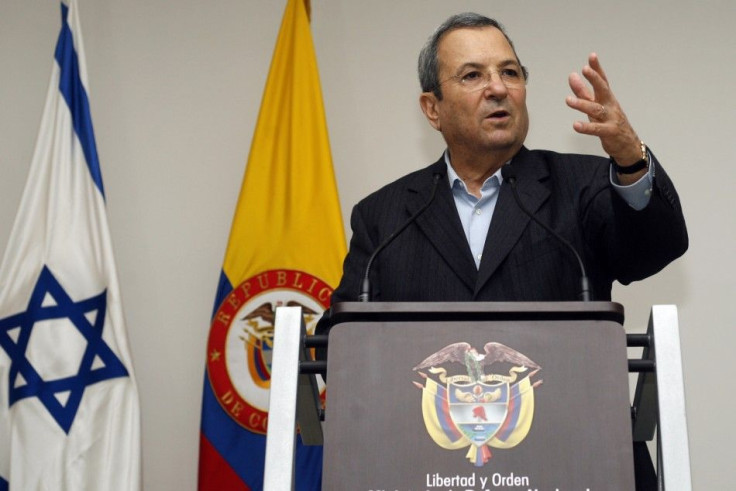Israeli Defense Minister Hints At Unilateral Pullout From West Bank

Israeli Defense Minister Ehud Barak said Wednesday that Israel should consider unilateral action if peace talks with the Palestinians prove to be impossible, a statement widely interpreted as a call for his country to withdraw from the West Bank.
Barak, delivering a speech at Tel Aviv University's Institute for National Security Studies, said Israel's newly formed coalition government, which holds the largest parliamentary majority in years, presented a rare opportunity to move negotiations with the Palestinians forward, though he counterbalanced his comments with a nod toward unilateralism.
We are a coalition of 94 MKs [members of the Knesset, the Israeli parliament, which has 120 seats]. This is the time to lead a diplomatic process, Barak said. But if a permanent agreement with the Palestinians proves to be impossible, we must consider an interim arrangement or even unilateral action.
Barak did not specify that he was referring to a withdrawal from the West Bank, nor did he attempt to clarify his statements.
However, Israel previously initiated a unilateral withdrawal from the Gaza Strip in 2005, conducting an evacuation of 8,500 settlers and the removal of thousands of troops, ending a 38-year occupation of the Palestinian territory.
Israeli settlements on the West Bank have been an extremely contentious issue in the conflict. Although Barak's indication of withdrawal as an option could be seen as conciliatory, unilateralism has typically provoked a negative response among Palestinian authorities, and the defense minister's comments could be perceived as an attempt to pressure the Palestinians back into negotiations while failing to address all of their grievances.
Israeli unilateral moves will lead to the formation of a Palestinian state in temporary borders, to which we object, said Nabil Abu Rudineh, chief aide to President Mahmoud Abbas of the Palestinian National Authority, Haaretz reported. This policy will lead to the conflict's continuation and not to a solution, burying the two-state solution.
Rudineh added that the PNA seeks an agreement with Israel that forms a Palestinian state with Jerusalem as its capital.
Without Jerusalem, we won't agree to anything, he said.
The Holy City's Contentious History
Israel has declared all of Jerusalem as its capital, where all branches of its government are centered, though it is not officially recognized by the majority of foreign governments, including its closest ally, the U.S.
Under the 1947 U.N. Partition Plan, Jerusalem was to be designated an internationally administered zone, separate from both Israeli and Palestinian jurisdiction.
The plan was rejected by Palestinian authorities. Negotiations fell apart with the onset of the 1948 Arab-Israeli War, during which Jordan invaded and annexed the West Bank and parts of Jerusalem, which became known as East Jerusalem, while Israel annexed the western portion of the city.
During the 1967 Six-Day War, Israel pushed Jordan out of East Jerusalem and the West Bank, claiming the entire city and surrounding areas of the West Bank.
Since then, Jerusalem has remained a point of contention within the Israeli-Palestinian peace process.
The PNA views East Jerusalem as the ideal capital of a future Palestinian state, while the current Israeli administration under Prime Minister Benjamin Netanyahu has expressed opposition to partitioning the Holy City.
United Jerusalem is Israel's capital. Jerusalem was always ours and will always be ours. It will never again be partitioned and divided, said Israeli Prime Minister Benjamin Netanyahu in 2009, according to Haaretz.
More recently, however, Netanyahu presented a more diplomatic stance last September in an interview with PBS.
I want Jerusalem a united city for sure. But that's the way I go -- these are not preconditions for negotiations. They're positions in the negotiations, he said. The final positions come out after a negotiation.
Netanyahu's words seem to demonstrate a willingness to come to the table, but Barak's make it clear that Israel will act with or without the Palestinians. And the Palestinians may not find it worth their while if they don't see a pathway to establishing a claim on the ancient city held sacred by Jews, Christians and Muslims alike.
© Copyright IBTimes 2024. All rights reserved.











